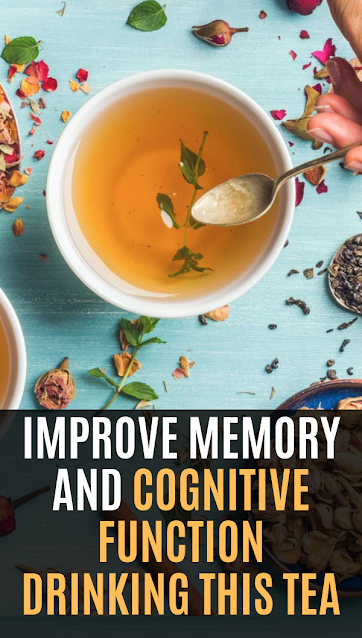It seems that peppermint tea provides more than simple refreshment after a long day at work. A study published not while ago has shown that peppermint tea has an ability to enhance long-term and short-term working memory. This scientific research which was revealed at the Annual Conference of the British Psychological Society in England ten days ago has extended the list of reasons why people should consume peppermint tea.
Namely, the scientists from the Northumbria University have examined the impact of specific herbs and aromas on memory and mood. They have given a series of questions to about 180 participants. These questions were associated with the participants’ mood and once they were answered the participants were given a hot beverage – chamomile or peppermint tea or just hot water.
About 20 minutes after they had their beverage, the individuals had to finish tests focused on evaluation of their memory and other important cognitive functions. In the end, they had to finish another similar mood test like in the beginning.
The final results have revealed that there is a connection between peppermint tea and cognition and mood improvement.
In addition, the individuals that had peppermint tea witnessed boosted long-term memory, preparedness, alertness and working memory.
What is interesting is that the participants who had chamomile tea witnessed calming and relaxing effects, but their memory and alertness were worsened.
The study involved a second set of tests. For this test, the team checked whether herbal smell can affect the cognitive performance of older persons. In this case they asked about 150 healthy individuals at the age of 65 or older to sit and relax in a room fragranced with lavender essential oil or rosemary essential oil.
Another group of participants was sitting in a room that was not fragranced. Once the test was over, participants had to complete memory tests and mood evaluation.
The results were very interesting because it was proven that the herbs had impact on the memory and mood of all participants. Individuals who were sitting in the room with rosemary scent had improved memory and had about 15% better results compared to the individuals who were sitting in the room that was not scented.
So, each herb has been linked to different effects on cognitive and mood capabilities for hundreds of years and this was the first time that these properties were tested through scientific study. Besides boosting alertness and memory, peppermint was also linked to reduction of nausea, headache, colds, indigestion, stomach aches and diarrhea.
According to the author of this study, Dr, Mark Moss, even though these positive effects of peppermint are not scientifically proven, there is no doubt that peppermint has the ability to boost cognitive performance.
Dr. Moss says that it is quite amazing how each herb has different effects on our memory and mood. This means that different herbs can be used in different situations. Even if you belong to the older generation, you can always rely on peppermint if you want to improve your memory.
Namely, the scientists from the Northumbria University have examined the impact of specific herbs and aromas on memory and mood. They have given a series of questions to about 180 participants. These questions were associated with the participants’ mood and once they were answered the participants were given a hot beverage – chamomile or peppermint tea or just hot water.
About 20 minutes after they had their beverage, the individuals had to finish tests focused on evaluation of their memory and other important cognitive functions. In the end, they had to finish another similar mood test like in the beginning.
The final results have revealed that there is a connection between peppermint tea and cognition and mood improvement.
In addition, the individuals that had peppermint tea witnessed boosted long-term memory, preparedness, alertness and working memory.
What is interesting is that the participants who had chamomile tea witnessed calming and relaxing effects, but their memory and alertness were worsened.
The study involved a second set of tests. For this test, the team checked whether herbal smell can affect the cognitive performance of older persons. In this case they asked about 150 healthy individuals at the age of 65 or older to sit and relax in a room fragranced with lavender essential oil or rosemary essential oil.
Another group of participants was sitting in a room that was not fragranced. Once the test was over, participants had to complete memory tests and mood evaluation.
The results were very interesting because it was proven that the herbs had impact on the memory and mood of all participants. Individuals who were sitting in the room with rosemary scent had improved memory and had about 15% better results compared to the individuals who were sitting in the room that was not scented.
So, each herb has been linked to different effects on cognitive and mood capabilities for hundreds of years and this was the first time that these properties were tested through scientific study. Besides boosting alertness and memory, peppermint was also linked to reduction of nausea, headache, colds, indigestion, stomach aches and diarrhea.
According to the author of this study, Dr, Mark Moss, even though these positive effects of peppermint are not scientifically proven, there is no doubt that peppermint has the ability to boost cognitive performance.
Dr. Moss says that it is quite amazing how each herb has different effects on our memory and mood. This means that different herbs can be used in different situations. Even if you belong to the older generation, you can always rely on peppermint if you want to improve your memory.
